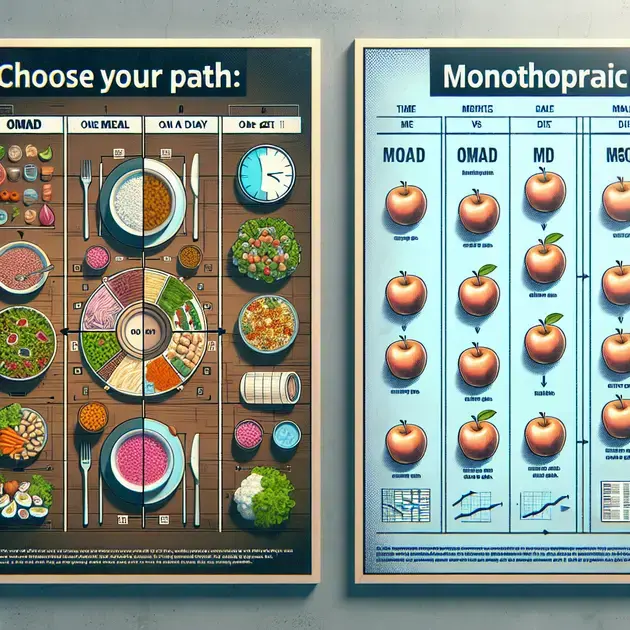Dieting has evolved significantly in recent times
Gone are the days of solely consuming boiled foods for weight loss. In today’s age, it’s not just about what you
eat, but also when and how often you eat that can have a significant impact on your dietary success. Two specific
types of restrictive diets, namely the OMAD (One Meal a Day) diet and the monotrophic diet, have gained popularity
in recent years.
The OMAD Diet
The OMAD diet, as the name suggests, involves eating only one meal a day and fasting for the remaining 23 hours.
This pattern of intermittent fasting has gained traction among individuals seeking quick weight loss results.
Supporters of the OMAD diet claim that by restricting eating to just one meal, the body enters a state of ketosis,
where it primarily burns stored fat for energy. This can potentially lead to accelerated weight loss.
The Monotrophic Diet
On the other hand, the monotrophic diet emphasizes consuming only one type of food throughout the day. This could
involve solely eating fruits, vegetables, or even a specific food like bananas. Proponents of this diet believe
that by simplifying food choices, the body’s digestion process becomes more efficient, leading to improved overall
health and weight loss.
Potential Downsides
While these diets have their own set of benefits, it is essential to consider their potential downsides as well.
Critics argue that the OMAD diet may lead to overeating during the one meal, which can negate any potential weight
loss benefits. Additionally, the strict eating window may not be suitable for everyone, especially those with
certain medical conditions or specific nutritional requirements. Similarly, the monotrophic diet, although it
promotes simplicity and potentially aids digestion, can lack proper nutritional balance. Consuming only one type of
food can result in a deficiency of essential nutrients necessary for overall health. It is crucial to consult with
a healthcare professional or a registered dietitian before embarking on such restrictive eating patterns to ensure
that nutritional needs are met.
Conclusion
In conclusion, the world of dieting has seen a departure from traditional boiled food approaches. The OMAD diet and
the monotrophic diet represent two distinct and restrictive eating patterns that have garnered attention in recent
years. While they may offer some unique benefits, it is important to consider their potential drawbacks and consult
with a healthcare professional before adopting any drastic dietary changes. Ultimately, finding a balance between
nutrition, personal preferences, and sustainable lifestyle changes is key to achieving long-term weight loss
success.
